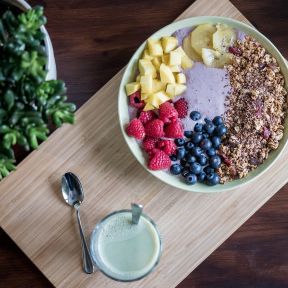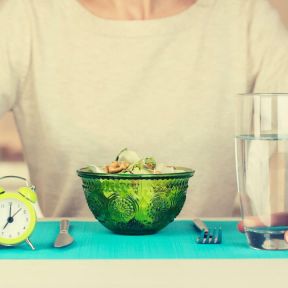
Chrononutrition
Chrononutrition is an evidence-based concept of food intake. The timing of food consumption is related to the body’s circadian rhythms and metabolic health. The idea suggests that the body’s internal clock affects the processing of nutrients. Studies show that both animals and humans are affected by temporal eating patterns. Food consumption is part of the daily waking cycle, when you feel hungry, body temperature fluctuations, hormone production, and sleeping.
Physician Alan Delabos described chrononutrition in the 1980s. He proposed that aligning food consumption with the body’s natural rhythms can benefit well-being. Larger meals are recommended earlier in the day, and smaller meals are recommended later in the day. Also, certain nutrients may be better processed at certain times of the day. Carbohydrates are better for breakfast, as the body may need more energy, while protein is recommended during the day. And, of course, a balanced diet is essential.
A chronotype is the individual variation of the sleep-wake cycle. We are each classified as either a morning, midday, or evening person. Your chronotype, also known as a diurnal preference, affects how you sleep and how active you are throughout the day. Knowing your natural chronotype can help you better manage food intake, energy, mood, and sleep quality.
Eating lighter meals can help the body with sleep and digestion, as well as boost metabolism, improve insulin sensitivity, and reduce blood pressure. It can also, of course, help you maintain a healthier weight.
A 2017 review of the research found that the time you eat can affect metabolism and obesity. The research found that there is an association between meal timing, weight gain, hyperglycemia, and diabetes. The timing of when you eat can affect overall weight management and even your attention and focus.
Time-restricted eating involves a time limit for food intake during the day. Instead of eating three meals in the morning, at noon, and in the evening, the window to eat is within four to ten hours in the daytime. In rat studies, time-restricted food consumption appears to reduce weight gain as well as benefit insulin sensitivity. Time-restricted eating is also a strategy in intermittent fasting.
Intermittent fasting and eating lighter meals have been shown to improve metabolism and lower blood sugar. This sort of fasting helps your body access energy from stored fat and not sugar, which is called ketosis.
Adjusting the time you eat to match the time zone of your destination may help your body adjust to different sleep and wake times. Essentially, food intake alerts the body to wake up. Other self-care practices are also essential, including getting natural light and physical activity.
Skipping breakfast does not appear to benefit well-being. Most of us can better tolerate glucose in the morning. And not eating earlier in the day may lead to eating later in the day, which can disrupt the body clock.
Circadian and metabolic desynchrony happens when your inner clock and rhythm become misaligned. As does artificial light, eating and sleeping at the wrong time affects the body. That’s why people who work the night shift have a higher risk of obesity and diabetes. Even sleeping in can disrupt the body’s rhythm.
There is no specific diet per se. But many diets can be used in chrononutrition—healthy diets like keto, paleo, or Mediterranean can be utilized.







